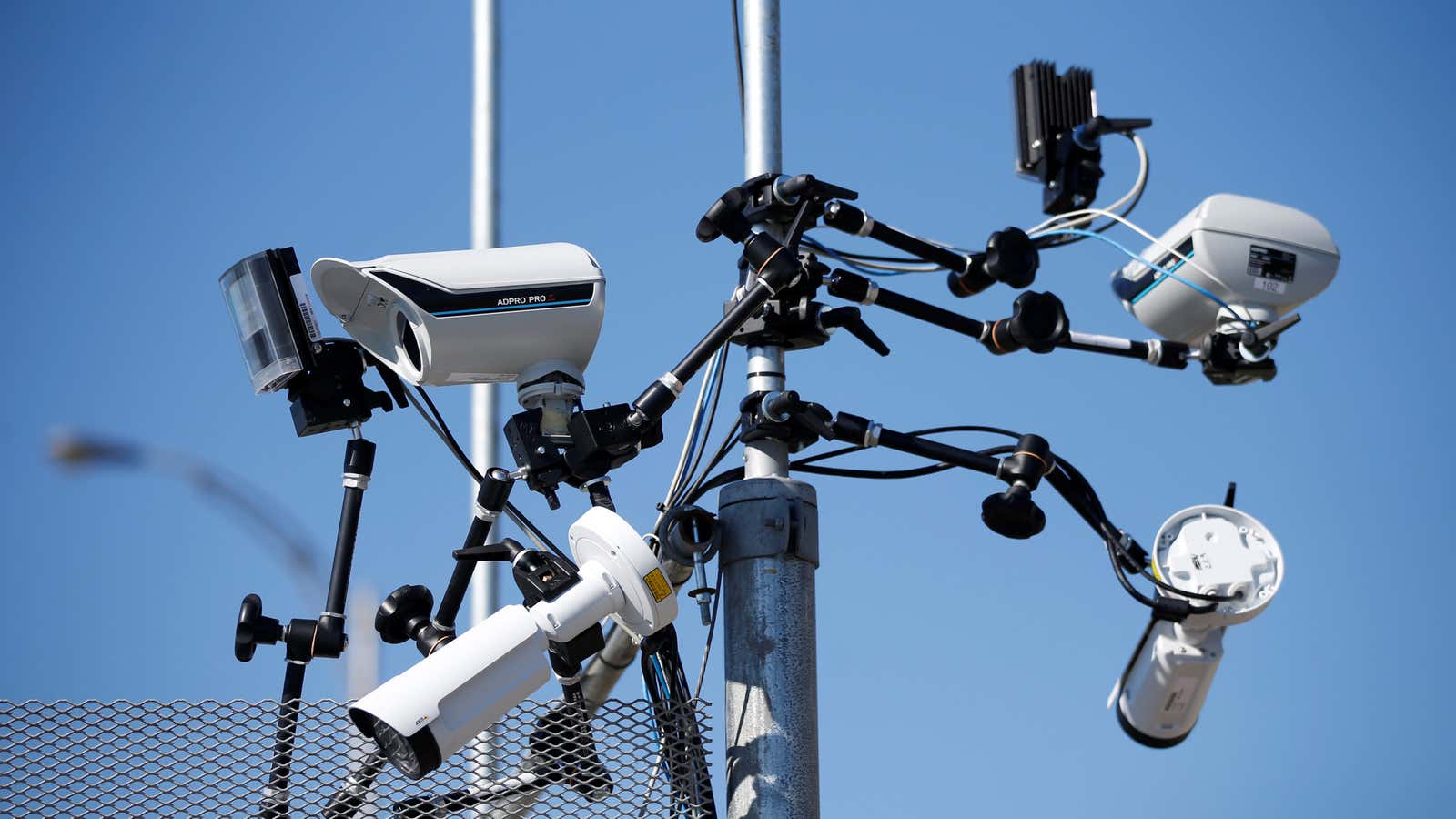Pressure on US lawmakers to create federal regulations on facial recognition has been mounting.
IBM, Amazon, and Microsoft stopped selling the technology to US police, and called on Congress to regulate its use. Amidst international protests against racism and police misconduct, news broke that Detroit police had wrongfully arrested a Black man based on a faulty facial recognition match. In response, House Democrats proposed a bill last week that would ban police from using facial recognition.
Against that backdrop, industry groups have quietly lobbied to soften regulations and avoid an outright ban. The effort has created strange bedfellows: Last year, the US Chamber of Commerce wrote a letter urging leaders to keep facial recognition legal. Signatories included the American Association of Airport Executives, the Security Industry Association, and NetChoice, a trade group dedicated to free enterprise on the internet.
But there are just a handful of trade groups that represent facial recognition companies themselves. These are the organizations lobbying Congress on their behalf.
Security Industry Association
SIA represents several companies that sell facial recognition tools to police, including Rank One Computing, NEC, Cognitec, and IDEMIA. It also counts Google, Facebook, and WeWork among its members, alongside defense contractors like Raytheon.
According to its website, SIA lobbies for “pro-industry policies and legislation on Capitol Hill and throughout the 50 states” with a team of lobbyists that lists experience with Republican Congress members and the Republican National Committee.
The organization argues that transparency and accountability can “ensure responsible use of [facial recognition], without unreasonably restricting tools that have become essential to public safety.”
Integrated Justice Information Systems Institute
The US Department of Justice launched the precursor to the IJIS Institute in 1999, assembling tech companies that do business with law enforcement. Today, it’s funded through federal grants and membership dues from firms like NEC and Motorola Solutions, which develop police facial recognition algorithms. Its member list also includes IBM, Amazon, and Microsoft.
Last year, the IJIS Institute partnered with the International Association of Chiefs of Police to create a 25-page catalog (pdf) of ways law enforcement can use facial recognition. The catalog suggests police could install the software on body cams, which would alert officers if a person they’ve stopped looks like someone in a wanted person mugshot database.
International Biometrics + Identity Association
IBIA represents facial recognition vendors including Cognitec, IDEMIA, NEC, and Aware, which sell software to police, alongside firms like CLEAR, which sells fingerprint and iris scanners to airports and arenas.
IBIA’s facial recognition lobbying centers on border control. The organization advocates for Congress to fund a biometric exit system to verify the identity of anyone leaving the country. In a white paper (pdf), the organization argues that border-based facial recognition can help catch felons and prevent terrorism.
Identification Technology Association
IdTA’s members include NEC, IDEMIA, and CLEAR, along with Leidos, which sells biometric scanners and airport security systems, and Unisys, which sells facial recognition tools to border patrols in the US and Australia.
Its president, Andrew Howell, is a lobbyist for Monument Advocacy. In his work for Monument, Howell represents IDEMIA along with a handful of large corporate clients and an advocacy group called Reform Government Surveillance, which fights for moderate surveillance regulation and claims the backing of Facebook, Apple, Google, Microsoft, Snap Inc., and Twitter.
